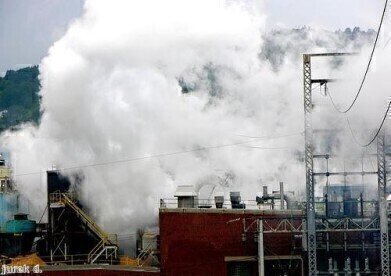-
 Coal continues to dominate power generation
Coal continues to dominate power generation
Air Clean Up
Current resistance to climate change may not be enough
Apr 19 2013
2013 has seen the biggest slump in clean energy finance in recent years, with the first quarter of the year declining by 22 per cent on the same period last year - according to Bloomberg New Energy Finance (BNEF). The reduction in investment in clean energy could mean that attempts to stop climate change will fall short.
Wind and solar farms have suffered the biggest loss with a 34 per cent fall in investment, year on year. Clean energy investment as a whole has fallen by 54 per cent in the US. BNEF blames this decrease on the uncertainty of policy in key markets. Michael Liebrich, chief executive of Bloomberg New Energy Finance, said: "The last 18 months have seen a number of significant support programmes launched in the aftermath of the financial crisis come to an end. The plummeting cost of clean energy technology has kept activity high in terms of megawatts of capacity, but not so much in dollar terms."
This lack of new investment means that power generation is still dominated by the use of coal. According to the International Energy Agency (IEA), between 2000 and 2010 the use of coal fired generation increased by 45 per cent. A vast increase, especially when compared to only 25 per cent increase in alternative generation.
As a result the IEA believes that our ability to remain within the targeted 2C global temperature rise is 'slipping out of reach'. The IEA's executive director, Maria van der Hoeven, said: "Despite much talk by world leaders, and a boom in renewable energy over the past decade, the average unit of energy produced today is basically as dirty as it was 20-years ago."
Without a boost in clean energy funding, the possibility of positively affecting climate change could remain unrealised.
Events
Nov 26 2024 Paris, France
Nov 27 2024 Istanbul, Turkey
H2O Accadueo International Water Exhibition
Nov 27 2024 Bari, Italy
Biogas Convention & Trade Fair 2024
Nov 27 2024 Hanover, Germany
Dec 11 2024 Shanghai, China








-as-feedstock.jpg)




